A Guide to Popular Window Types for Your Home
Windows are more than just panes of glass shielding us from the elements; they’re the eyes of a home, offering...
Read MoreLast Updated: 27 April 2023
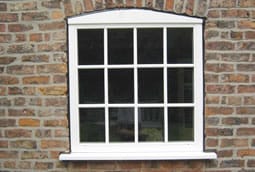
All timber used in window manufacture is divided into two categories; hardwoods and softwoods. Despite their seemingly simple names, there’s more to a hardwood than being ‘hard’ and more to a softwood than being ‘soft’. In fact, rather confusingly, some hardwoods can be incredibly soft, and some softwoods incredibly hard.
Hardwoods generally come from broad-leafed, deciduous trees such as oak, beech and mahogany. The thing that defines a hardwood from a softwood is the presence of special pores in the cellular structure of the wood itself. Their complex cellular structure gives them a great dimensional stability and durability. Hardwoods are used in everything from musical instruments, boats, tools and of course, windows.
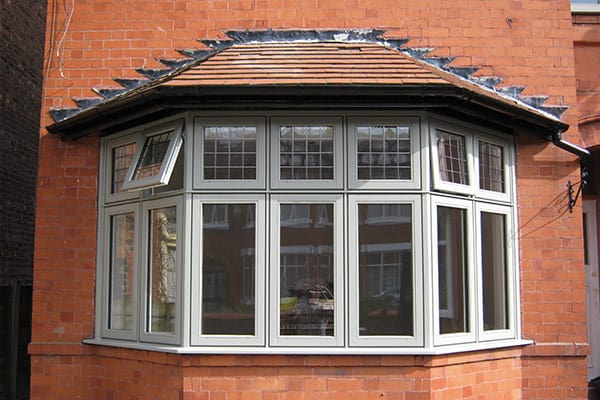
Softwood makes up about 80% of the world’s source of timber. Versatile, high performing and durable, treated softwoods are suited to the demands of a range of projects and applications. They’re also incredibly fast-growing and one of the most sustainable types of timber available. This makes them perfect for use in timber windows.
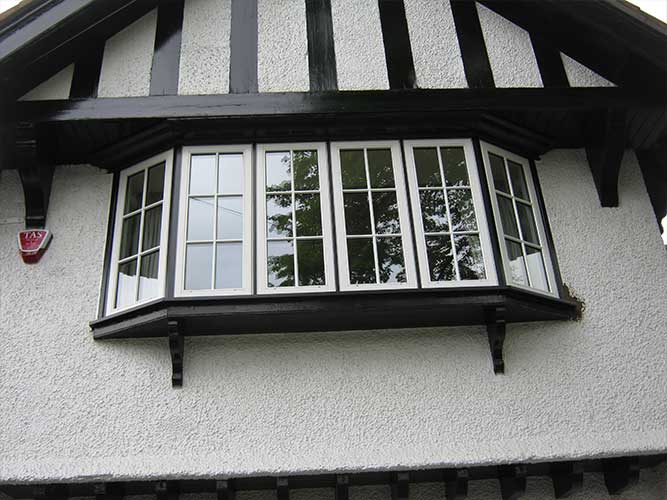
Within the two main categories (hardwood and softwood), there are many different types of wood. Although not all of them are used in the construction of timber windows, we’ve looked into some of the wood varieties below so you can form an idea of some of the other ways in which timber is used.
Although this list is by no means extensive, the list below will provide you with an idea of some different types of wood and their uses. These particular examples of hardwoods are some of the most commonly used varieties.
Despite being relatively hard (Ash is rated 4 out of 5 for hardness with 5 being the hardest), it’s pretty easy to work with. Its colour is white to pale brown and it has a straight grain. Ash also takes stain pretty well and it’s a good alternative to White Oak.
Strong, durable and highly resistant to abrasion, Beechwood is often used in the construction of houses. It has a white to pinkish-brown colour and a fine grain so it looks very attractive. Beechwood is also commonly used to build a variety of furniture and household items.
Amongst the different varieties of Mahogany, the colour tends to vary between a rich red or brown-red. With a hardness of around 2 on a scale of 1 to 5, it has a straight grain and it takes to any staining or coating extremely well. Mahogany is renowned across the world as one of the best materials for making fine-quality furniture.
Despite there being a number of different types of softwood, a large number of them are somewhat yellow or reddish in colour. We’ve compiled a list of some of the more common softwood varieties and their characteristics so you can identify some of the differences that exist between them.
There are various types of Cedarwood, although the most popular variety is Western Red Cedar. As the name suggests, it has a reddish colour. It has a straight grain, is relatively soft and is excellent at weathering moist environments. For the latter reason, it is commonly used for decking, building exteriors and outdoor furniture.
Known for having a straight, pronounced grain and a reddish-brown tint, Fir is a ‘hard’ softwood, rating 4 on a scale of 1 to 4 for hardness. Although its usage is usually limited for building works, it’s sometimes used in furniture-making too.
Pine is so commonly used in the construction of furniture that if we were to hedge a guess, we’d say that you either have or have had Pine furniture in your home at some point. Relatively soft so it lends itself well to carving, once sealed, it also takes staining very well too.
Type of wood: Hardwood
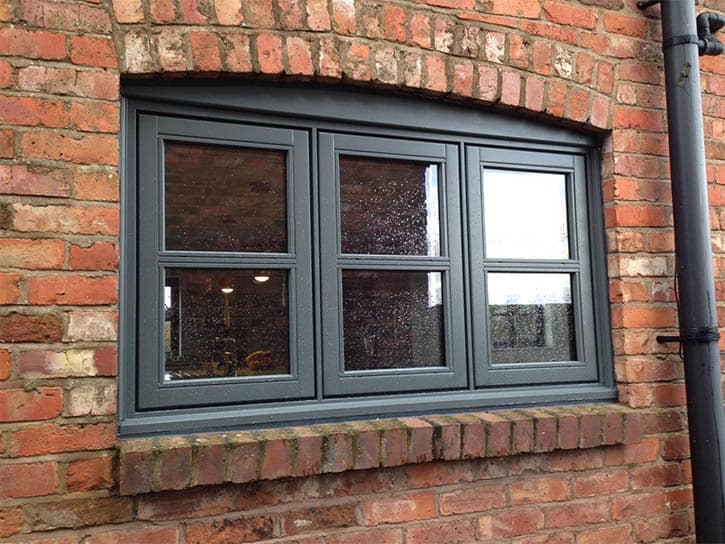
One of the most famous types of hardwood, oak has been the premium material of choice for timber windows for centuries. In fact, some of the earliest windows ever constructed were made of oak. With a high dimensional stability, great thermal and acoustic insulation and beautiful aesthetics, oak timber windows are generally suited to heritage properties and traditional-look homes.
Type of wood: Softwood
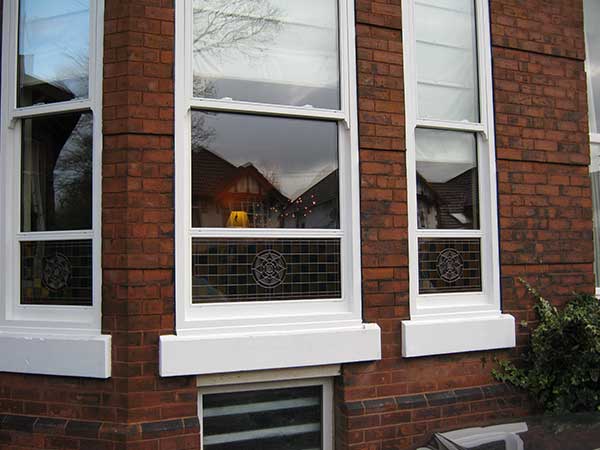
Accoya is a specially treated softwood that has incredible levels of performance. The acetylation treatment process which Accoya is put through changes the cellular structure of the wood, enhancing its durability and thermal performance. This process provides the wood with additional weatherproofing and even gives it insect-repellent properties! With an estimated working lifespan of 60 years, Accoya wood can easily last longer if well maintained.
Other common hardwoods used in window manufacture include sweet chestnut, Sapele and Teak. Softwoods include species such as douglas fir, larch and red cedar.
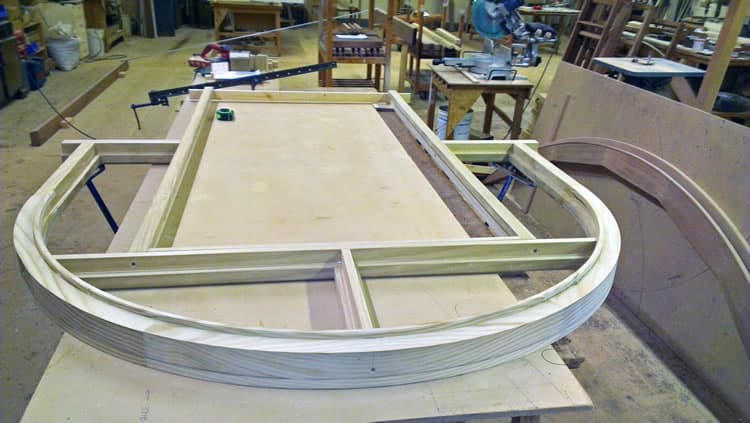
Timber windows are constructed using timber joinery techniques. Joinery is the process in which two or more sections of wood are connected. In most cases, those constructing timber windows will not be the ones who fit them. Here at Reddish Joinery, however, we build and install a selection of excellent timber windows.
The best wood for windows will depend on a variety of factors, however, you might consider the following:
To explore this issue in more depth, check out our blog on Accoya vs Hardwood – how to choose timber windows.
Here at Reddish, we offer windows, doors and conservatories available in both hardwood and softwood. This is so that you can find the perfect material for your needs. For more information please give us a call on 0161 969 7474 or send us a message.
Windows are more than just panes of glass shielding us from the elements; they’re the eyes of a home, offering...
Read MoreIf you’ve noticed your window has become difficult to open or close there could be a number of problems going...
Read MoreWhen you’re living in a period property it can be difficult to find the balance between improving the efficiency of...
Read MoreWith energy bills continuing to soar, we’re all looking for ways we can conserve energy around our homes. When homeowners...
Read More